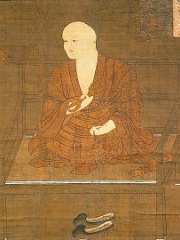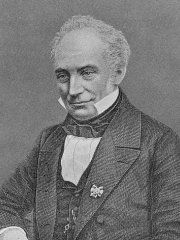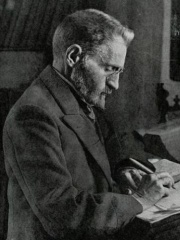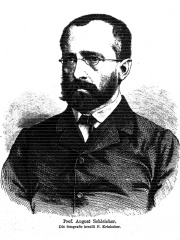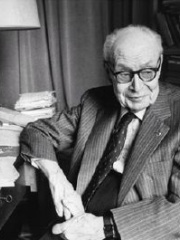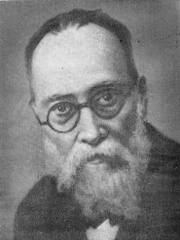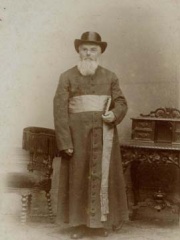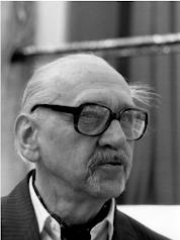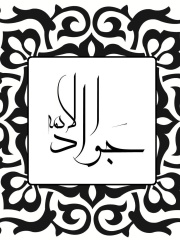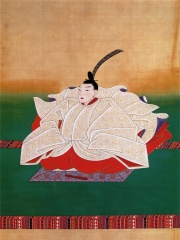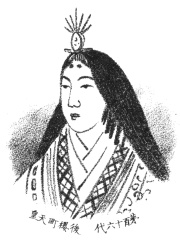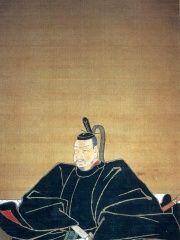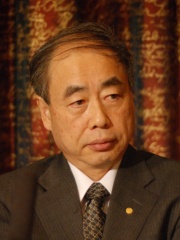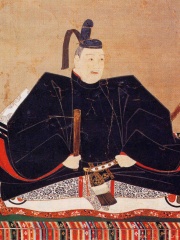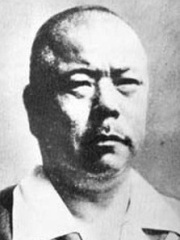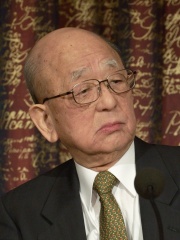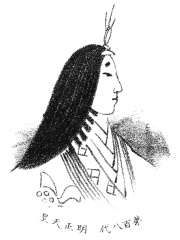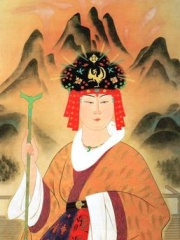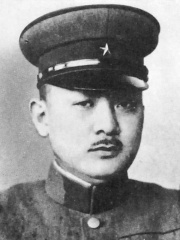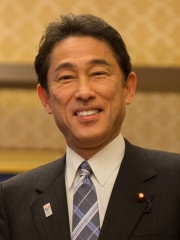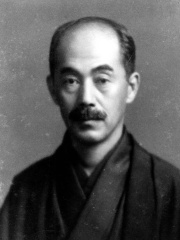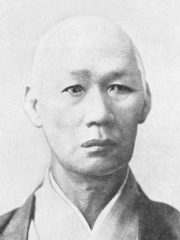言語学者
Kūkai
774 - 835
JA.WIKIPEDIA PAGE VIEWS (PV)
Memorability Metrics
Page views of Kūkai by language
Among 言語学者
Among 言語学者, Kūkai ranks 19 out of 214. Before him are Leonard Bloomfield, Franz Bopp, Eliezer Ben-Yehuda, Jost Gippert, August Schleicher, and Georges Dumézil. After him are Franz Miklosich, Edward Sapir, Antoine Meillet, Johann Martin Schleyer, Algirdas Julien Greimas, and William Jones.
Most Popular 言語学者 in Wikipedia
Go to all RankingsLeonard Bloomfield
1887 - 1949
HPI: 74.58
Rank: 13
Franz Bopp
1791 - 1867
HPI: 73.31
Rank: 14
Eliezer Ben-Yehuda
1858 - 1922
HPI: 72.93
Rank: 15
Jost Gippert
1956 - Present
HPI: 72.21
Rank: 16
August Schleicher
1821 - 1868
HPI: 71.80
Rank: 17
Georges Dumézil
1898 - 1986
HPI: 70.95
Rank: 18
Kūkai
774 - 835
HPI: 70.88
Rank: 19
Franz Miklosich
1813 - 1891
HPI: 70.75
Rank: 20
Edward Sapir
1884 - 1939
HPI: 70.67
Rank: 21
Antoine Meillet
1866 - 1936
HPI: 70.24
Rank: 22
Johann Martin Schleyer
1831 - 1912
HPI: 69.72
Rank: 23
Algirdas Julien Greimas
1917 - 1992
HPI: 69.68
Rank: 24
William Jones
1746 - 1794
HPI: 69.58
Rank: 25
Contemporaries
Among people born in 774, Kūkai ranks 1. Among people deceased in 835, Kūkai ranks 1. After him are Muhammad al-Jawad, Jayavarman II, Berengar the Wise, and Ibrahim al-Nazzam.
Others Born in 774
Go to all RankingsOthers Deceased in 835
Go to all RankingsKūkai
LINGUIST
774 - 835
HPI: 70.88
Rank: 1
Muhammad al-Jawad
RELIGIOUS FIGURE
811 - 835
HPI: 69.83
Rank: 2
Jayavarman II
POLITICIAN
800 - 835
HPI: 66.93
Rank: 3
Berengar the Wise
NOBLEMAN
790 - 835
HPI: 61.11
Rank: 4
Ibrahim al-Nazzam
PHILOSOPHER
760 - 835
HPI: 59.64
Rank: 5
In 日本
Among people born in 日本, Kūkai ranks 99 out of NaN. Before him are Emperor Go-Momozono (1758), Junko Tabei (1939), Empress Go-Sakuramachi (1740), Date Masamune (1567), Makoto Kobayashi (1944), and Tokugawa Hidetada (1579). After him are Tomoyuki Yamashita (1885), Akira Suzuki (1930), Empress Meishō (1624), Himiko (175), Tadamichi Kuribayashi (1891), and Fumio Kishida (1957).
Others born in 日本
Go to all RankingsEmperor Go-Momozono
POLITICIAN
1758 - 1779
HPI: 70.98
Rank: 93
Junko Tabei
MOUNTAINEER
1939 - 2016
HPI: 70.97
Rank: 94
Empress Go-Sakuramachi
POLITICIAN
1740 - 1813
HPI: 70.96
Rank: 95
Date Masamune
MILITARY PERSONNEL
1567 - 1636
HPI: 70.90
Rank: 96
Makoto Kobayashi
PHYSICIST
1944 - Present
HPI: 70.90
Rank: 97
Tokugawa Hidetada
POLITICIAN
1579 - 1632
HPI: 70.89
Rank: 98
Kūkai
LINGUIST
774 - 835
HPI: 70.88
Rank: 99
Tomoyuki Yamashita
MILITARY PERSONNEL
1885 - 1946
HPI: 70.86
Rank: 100
Akira Suzuki
CHEMIST
1930 - Present
HPI: 70.85
Rank: 101
Empress Meishō
RELIGIOUS FIGURE
1624 - 1696
HPI: 70.84
Rank: 102
Himiko
POLITICIAN
175 - 248
HPI: 70.75
Rank: 103
Tadamichi Kuribayashi
MILITARY PERSONNEL
1891 - 1945
HPI: 70.67
Rank: 104
Fumio Kishida
POLITICIAN
1957 - Present
HPI: 70.64
Rank: 105
Among 言語学者 In 日本
Among 言語学者 born in 日本, Kūkai ranks 1. After him are Kunio Yanagita (1875), Nakahama Manjirō (1827), and Takekazu Asaka (1952).
Kūkai
774 - 835
HPI: 70.88
Rank: 1
Kunio Yanagita
1875 - 1962
HPI: 59.23
Rank: 2
Nakahama Manjirō
1827 - 1898
HPI: 59.01
Rank: 3
Takekazu Asaka
1952 - Present
HPI: 55.53
Rank: 4
